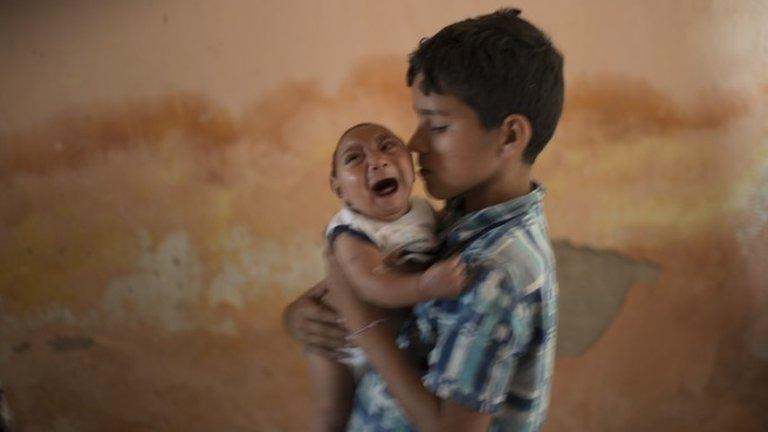Brazil carnival: Party goes on despite Zika virus threat
- Published
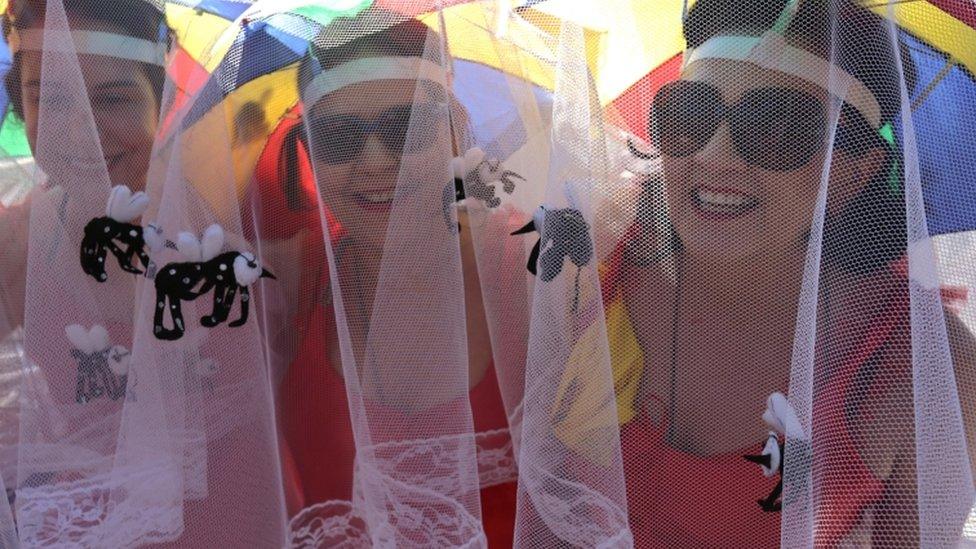
Mosquito nets costumes have been popular in Recife's carnival
Millions of people across Brazil have joined the first day of the annual carnival festivities despite concerns about the outbreak of the Zika virus.
In Recife, the city most affected by the mosquito-borne disease, more than one million people in colourful costumes have been partying.
In Rio de Janeiro, huge crowds of revellers have filled the city centre to celebrate.
The virus has been linked to a surge of brain malformations in newborn babies.
The health ministry and local authorities have been handing out leaflets alerting residents and tourists to the risks of Zika.
Over a million visitors are expected in Rio de Janeiro for the carnival celebrations, which end on Wednesday morning.
This is the first test of whether fear of contamination by the Zika virus may scare tourists from the Olympics the city will host in August and September, says the BBC's Julia Carneiro.

More than 500 parades will be held in Rio de Janeiro until Wednesday morning
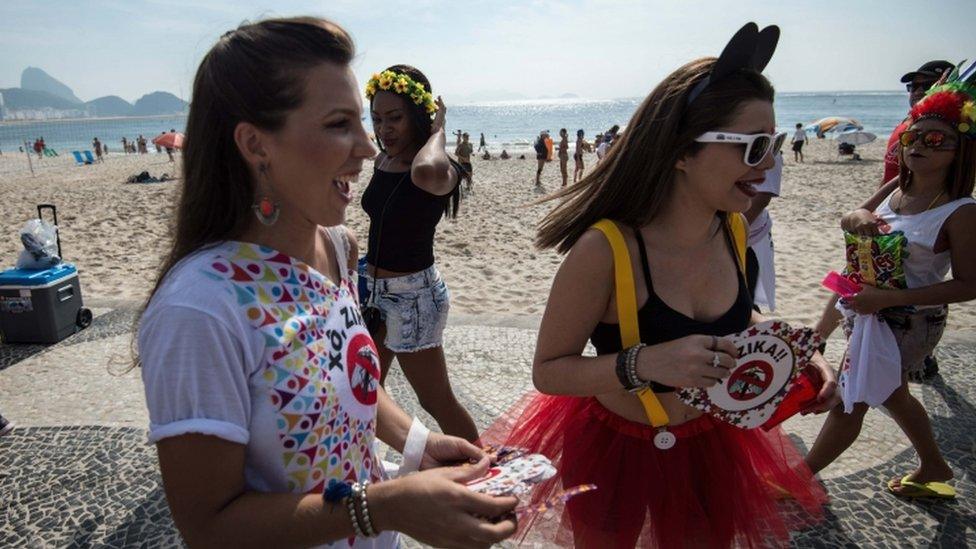
Government employees in Copacabana Beach handed out leaflets with information about Zika
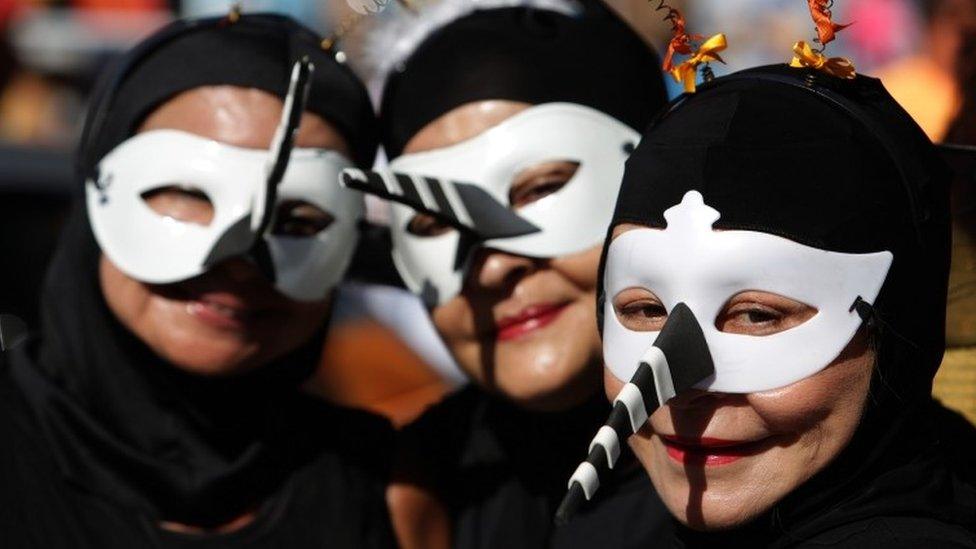
In typical carnival irreverence, some revellers in Recife dressed up as the Aedes mosquito
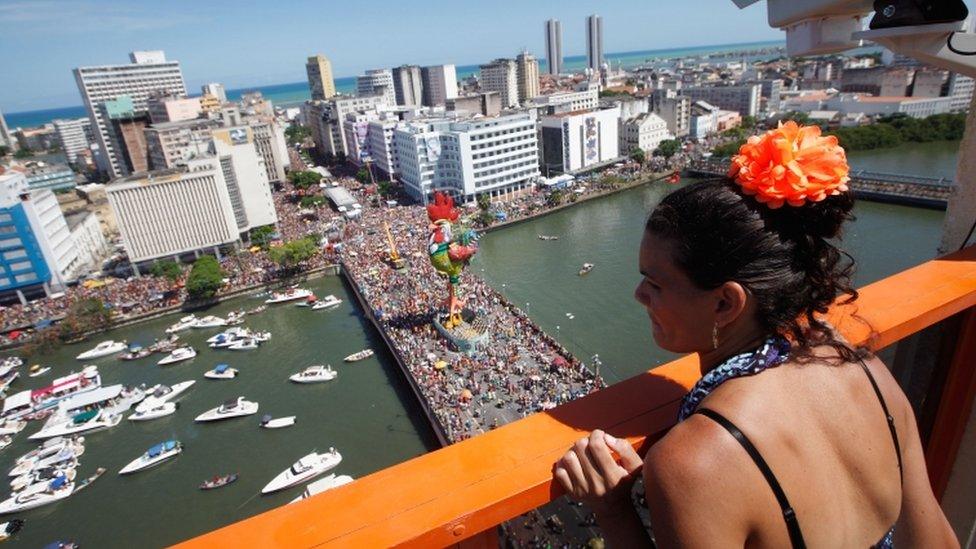
More than one million people joined the traditional Dawn Rooster parade in Recife
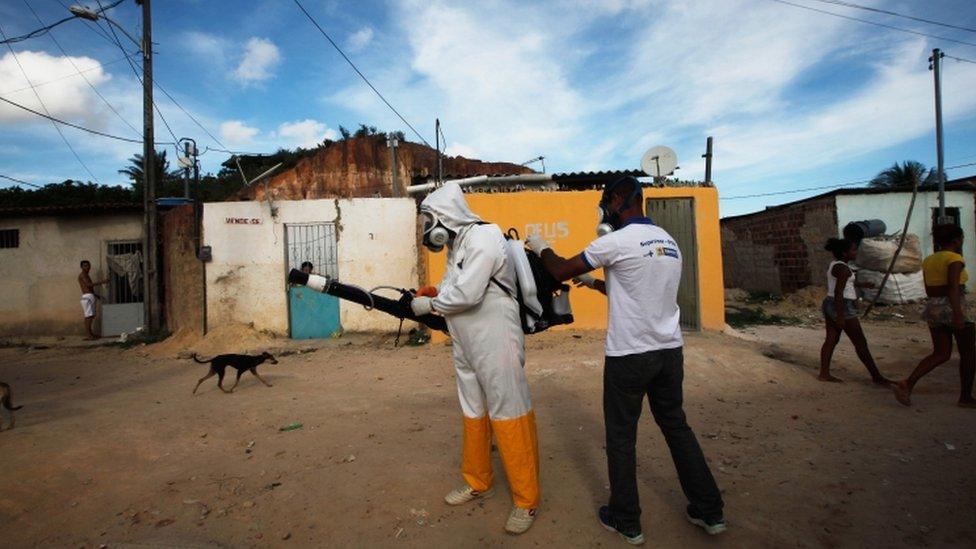
Mosquito elimination campaigns are continuing in many cities through the festivities
Brazilian authorities and the International Olympic Committee have pointed out that the Games will be held during the Southern Hemisphere winter, when conditions for the proliferation of the mosquito that spreads the virus will be less favourable.
Fumigation to try to eliminate the Aedes aegypti, which also carries the dengue and chikungunya viruses, are continuing in many Brazilian cities during carnival.
Some 220,000 armed forces troops will launch a big clean-up operation next week to eliminate puddles of stagnant water where the mosquitoes breed.
President Dilma Rousseff has urged all Brazilians to join the effort.
More than 20 countries in the Americas have been affected by the Zika virus outbreak. Brazil has been the worst hit country.
- Published5 February 2016
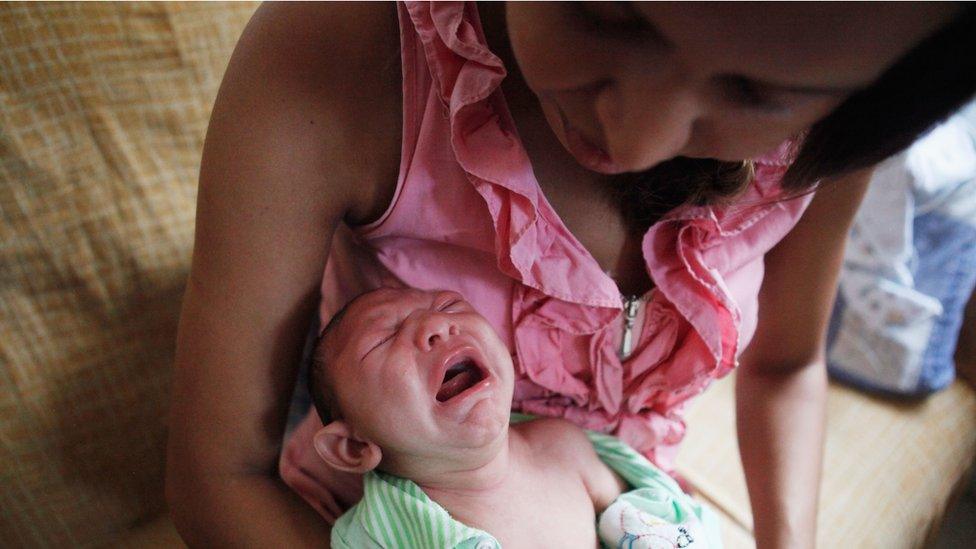
- Published24 January 2016
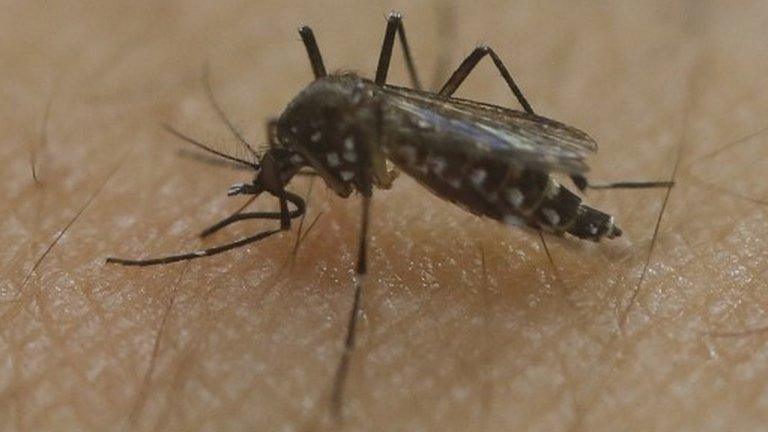
- Published21 January 2016
